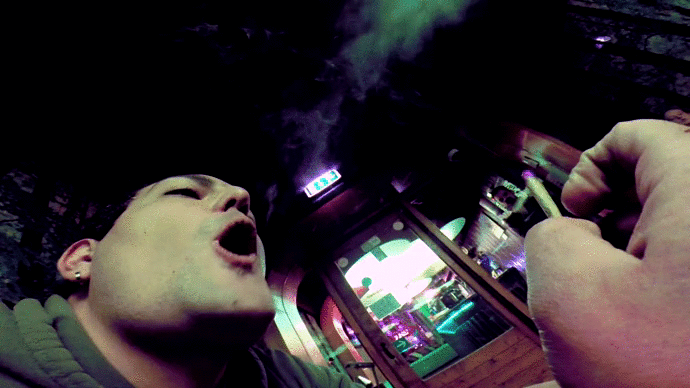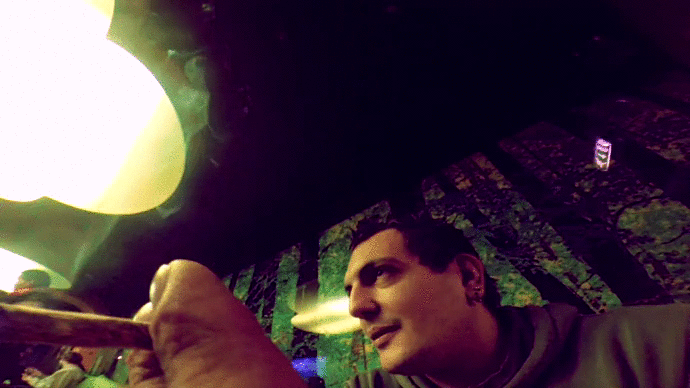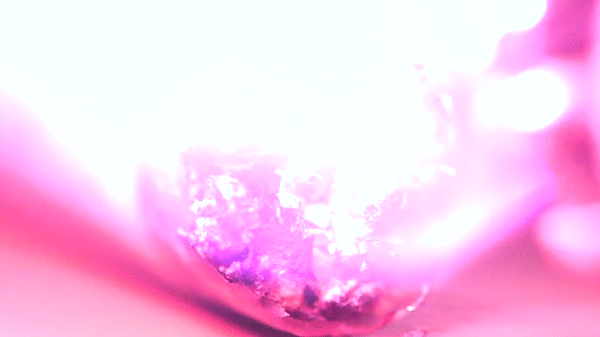In the Netherlands, 38 years of lessons on 'tolerating' pot
AMSTERDAM | As a teenager, Amsterdam Mayor Eberhard van der Laan played soccer and smoked pot. He stopped the pot part around the age of 18 or 19, he said, just like many other Dutch youth in the decades since the Netherlands pioneered a new approach to soft drugs.
“I think the more relaxed you look at this phenomena, the easier people will stop with it because there is no thrill in using it [if it’s tolerated]," van der Laan said.
This is a common talking point in the legalize pot movement, a tonic to the “reefer madness” whipped up by their opponents. If weed’s legal, people will partake in moderate ways, like French 16-year-olds sipping a glass of Merlot with dinner. Getting high might even get boring. And sure enough, research has found that in the Netherlands only a fairly modest percentage of youthful experimenters -- by international standards -- move on to adult usage.
But not every argument made by legalize pot advocates has proven to be true in the Netherlands in the 38 years since it decriminalized pot. And its discoveries may hold lessons for the new pot paradises Colorado, Washington state and Uruguay.

The limits of tolerance
Marijuana is actually illegal in the Netherlands. But the 1976 law permitting low-level possession gave rise to a type of establishment found only here: the coffee shop. The country is now smattered with 600 of these cannabis bars, selling small amounts for take-out or smoke-in. The idea was that street dealers, who also sell hard drugs, will be put out of business if licensed coffee shops are allowed to sell soft drugs like marijuana and hashish.
But in a rare interview with the American media, van der Laan admitted that it hasn’t exactly worked out that way.
“We have what we call a backdoor problem,” van der Laan said.
The Netherlands is in something of a bind, because the country adheres to the Single Convention on Narcotic Drugs, a 1961 United Nations convention that bans countries from growing or transporting large quantities of drugs for sale.
“So, this is what we call ‘gedogen’ or tolerated,” said van der Laan about their official stance towards pot. “And that is because many people think that international laws and regulations forbid us to find legal ways of organizing this backdoor situation.”

So not only is the Netherlands less liberal than Colorado on possession – Colorado residents can buy more than five times the Dutch five-ounce limit – but it also has a far more hardline approach to growing. Up to five plants at home is “tolerated,” but cultivation on a professional level can get a person in serious trouble.
Dutch police said it conducts about 5,000 marijuana raids annually throughout the country. Last month, police discovered some 1,200 plants growing underground at an illegal marijuana farm in Drenthe, in the northern part of the country.
The Dampkring is one of the most famous coffee shops in the country, featured in the 2004 movie “Ocean’s Twelve.” Here owner Jason den Enting has a license to sell small amounts of marijuana, but his supply is illegally grown.
“They get it on the black market,” den Enting said about his suppliers. “They talk to the growers, and yeah, all that is illegal.”
“We have learned to live with it,” van der Laan said about the ban. But that doesn’t mean he’s not trying to change it.
Earlier this month, van der Laan, along with 34 other Dutch mayors, signed a manifesto urging the government to legalize cultivation, saying the current laws force coffee shop proprietors to rely on illegal gangs, encouraging organized crime and wasting police resources.
The government is so far unmoved, but the legalization movement in the United States may end up nudging lawmakers. As Dutch politician Frits Bolkestein said at a conference on marijuana legislation earlier this month, “the international tide is turning.”
Clamping down

The Netherlands’ liberal polices have made it a marijuana Mecca, with tourists coming specifically for the drug culture, and then bringing stashes back home. In an effort to curb drug trafficking, partly due to friction with neighboring countries like Belgium and Germany, the conservative party announced a few years ago that they wanted to ban tourists from coffee shops completely.
But most of the coffee shop customers in Amsterdam are tourists; tourists who also visit museums, stay at hotels and eat at restaurants. Authorities in the capital complained that the plan would take a huge financial toll.
The government eventually rewrote the law, allowing each city to decide for itself. And Amsterdam compromised, agreeing to submit to another national regulation: banning shops within 250 meters, or around 820 feet, of schools. As of this year, the affected shops can’t open their doors during school hours, and some will be forced to shut altogether.
“We’re doing a lot of effort to reduce alcohol-drinking amongst the under-aged… but the same goes for the use of cannabis and weed,” said van der Laan. “It’s just not good for the brains.”
According to 2011 study, published in the journal Addiction, Dutch youth report that cannabis is highly available – but not as available as in the U.S. And between 1997 and 2005, rates of past-year usage among 15-to-24-year-olds actually dropped from 14 to 11 percent.
Rewinding deregulation

But not every Dutch city has made such a compromise. Maastricht, located two hours south of Amsterdam on the border of Belgium and Germany, left the ban in place and imposed fines on coffee-shop owners who continued to sell to tourists.
Onno Hoes, the city’s mayor, said that more than 1 million foreign tourists visiting the city’s 13 licensed coffee shops every year has created “an unacceptable nuisance,” and brought filth and crime to the city.
Maastricht’s coffee shop owners counter that the ban on selling to non-residents has devastated their business and damaged the local economy. Marc Josemans, who owns a local coffee shop called Easy Going, said 90 percent of his customers cross the border just to buy marijuana.
The ban, he added, has led to a surge in illegal street dealing.
“We have about 150 street dealers roaming the streets of the city center to check out if they can find a foreigner who is looking for cannabis products,” Josemans said. “If they find one, they will take him away to the outskirts of town, to the suburbs to the areas where people are living.”
Josemans is part of an active lobby of coffee shop-owners who decided to openly defy the law, triggering month-long suspended jail sentences and fines last summer. His shop remains closed.
Marc Josemans
Local coffee shop owner
The agitators of Maastricht are a testament to how hard it is to rewind the deregulation of drugs.
“There were 425 people who all lost their jobs, and they cannot find a job anywhere else because they are being asked about their experience,” said Josemans. “And they have to say, ‘Well, I’ve been a drugs dealer for around 30 years.’”
Hoes, the city’s mayor, repeatedly declined America Tonight’s request for an interview, saying that legislation banning the sale of marijuana to non-residents is under federal review. But city councilwoman Vivianne Hijnen defended the ban.
"The coffee shops were established to provide the local market with and small scale shops and it was never meant to supply the Netherlands, Belgium, France Germany, to buy their products in the coffee shops,” Heijnen told America Tonight. “It’s gotten too much for us to handle so we had to take action.”
The Council of State, the advisory body to the government, is expected to rule on the proposed legislation in March or April.
Colorado officials have watched these developments in the Netherlands closely.
“Well it was those concerns in Amsterdam that really kind of fuelled those of us who were really in opposition to legalizing recreational marijuana,” Denver Mayor Michael Hancock told America Tonight.
Hancock initially opposed legalizing marijuana in his state, and believes changes will need to be made as authorities continue to assess the affects of the laws.
“There will be lessons learned on new laws no matter what particularly on that scale," he said. "This is a huge culture shift not only for Colorado but for the entire United States."
Despite these unresolved problems and lingering tensions in his own country, or perhaps because of them, van der Laan said he was happy that Colorado and Washington state legalized recreational cannabis, and that the Netherlands can now share the spotlight with the United States.
“I hope that the developments in the United States will bring more balance in the discussion, innovations and solutions,” Amsterdam Mayor van der Laan said. “I say, welcome to the club, and thank you for joining us.”
Error
Sorry, your comment was not saved due to a technical problem. Please try again later or using a different browser.